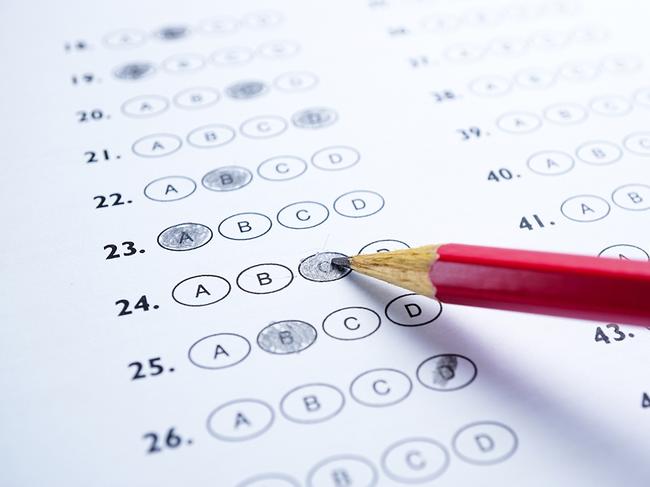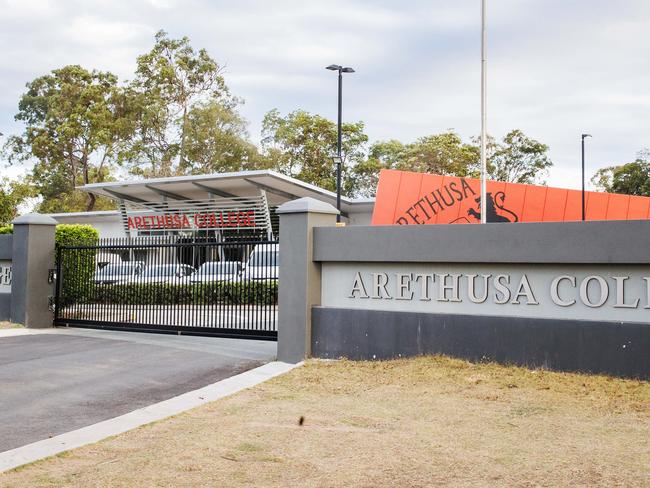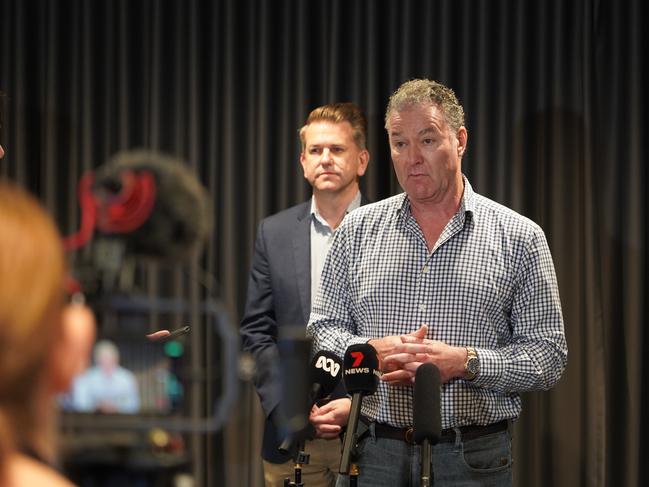Calls for ‘urgent review’ into NAPLAN amid Qld participation slump
NAPLAN participation is falling at a growing number of Queensland schools as concerns grow over the viability of the national assessment program.

QLD News
Don't miss out on the headlines from QLD News. Followed categories will be added to My News.
NAPLAN participation is falling at a growing number of Queensland schools amid rising concerns surrounding the viability of the national assessment program.
Analysis by The Courier-Mail revealed dozens of South East Queensland schools fell below 80 per cent participation in this year’s NAPLAN testing, with a majority of those schools’ participation falling from 2023 numbers.
Across both primary and secondary there were 25 government, eight independent and five Catholic schools recording a participation rate below the threshold or having such low participation numbers that they could not have their results compared to the national average.
While some of the low participation rates can be attributed to a small student population in those schools, there are also schools with hundreds of students where rates are dropping.
According to the Australian Curriculum, Assessment and Reporting Authority, Australian Christian College Moreton, in Caboolture, which has more than 2000 students, saw participation rates drop from 65 per cent last year to 45 per cent this year, while Silkwood School in the Gold Coast hinterland, which has 773 students, had a participation of just 30 per cent.
Meanwhile Tamborine Mountain State High School, also in the Gold Coast hinterland, which has close to 900 students, did not meet the threshold of having at least 11 participants and 80 per cent participation rate in each test domain – reading, writing, spelling, grammar and numeracy – to compare its results nationally.
The data comes as many schools admit some parents and students are choosing to opt out of NAPLAN.
Arethusa College, a special assistance school that has become one of the fastest growing independent schools in Australia, is one school who support students’ decision not to participate in the national testing.
“A lot of our families, opt out because they don’t see any benefit for their young person or our young people just flat out refuse because they can’t see any purpose in it for them,” executive principal and CEO Lisa Coles said.
“For us, we have a range of other data that we use that’s far more useful for us to help track kids’ literacy and numeracy, how they’re going.
“We’re not interested in comparing ourselves against other schools, we’re interested in comparing that young person to when they started with us, to how they’re going to inform how we support them and how we educate them.”

Ms Cole said NAPLAN can be an important tool for schools and the government, however there was a “growing discontent” among educators that the system is “inadequate” for setting up young students.
“I think it’s just all part of a much broader conversation around what do we want education to look like for our young people moving forward, for decades now, we’ve been saying education needs to move out of the industrial age into a new model,” she said.
“It’s not that the test is inherently wrong, it is just inadequate for setting young people up well – it’s not being used appropriately.”
Similarly, a spokesperson from Samford Valley Steiner School said while NAPLAN is a useful tool, the school believes it’s “vital to use a variety of assessment methods”.
“Participation in NAPLAN at Steiner schools varies, with some schools reporting consistent engagement, while others see lower rates.
“Feedback from students and parents is often mixed – while some value the insights NAPLAN provides, others feel it doesn’t reflect the holistic learning approach central to Steiner education.”
Following the release of testing results this week, the Queensland Teachers Union doubled down on their position that NAPLAN is in need of an “urgent review”.
“This year is the clearest example of why the Union formed this position, politicians continue to use NAPLAN as an indicator of how schools and students are performing while blatantly ignoring the unfair conditions state schools find themselves in,” a QTU spokesperson said.
In both 2023 and 2024 the national average for participants was 95 per cent and the Federal Department of Education said participation had recovered well from the Covid years.
“NAPLAN has an important role in the Australian education system and is a world-class assessment that provides a sophisticated and comparable view of student performance and progress in literacy and numeracy,” a department spokesperson said.
“There was an increase (in participation) on average by 0.1 percentage points across all years and domains compared to 2023, from 93.3 per cent to 93.4 per cent.”

Queensland Education Minister John-Paul Langbroek said he was disappointed to see low participation rates. He said NAPLAN was important to ensure funding and resources were directed to the right areas.
“It’s disappointing a small number of schools have low participation rates in NAPLAN and it’s a direct result of the former Labor Government’s lack of support for this important program,” Mr Langbroek said.
“We will restore confidence in the education system and give students the world-class education they deserve.”


